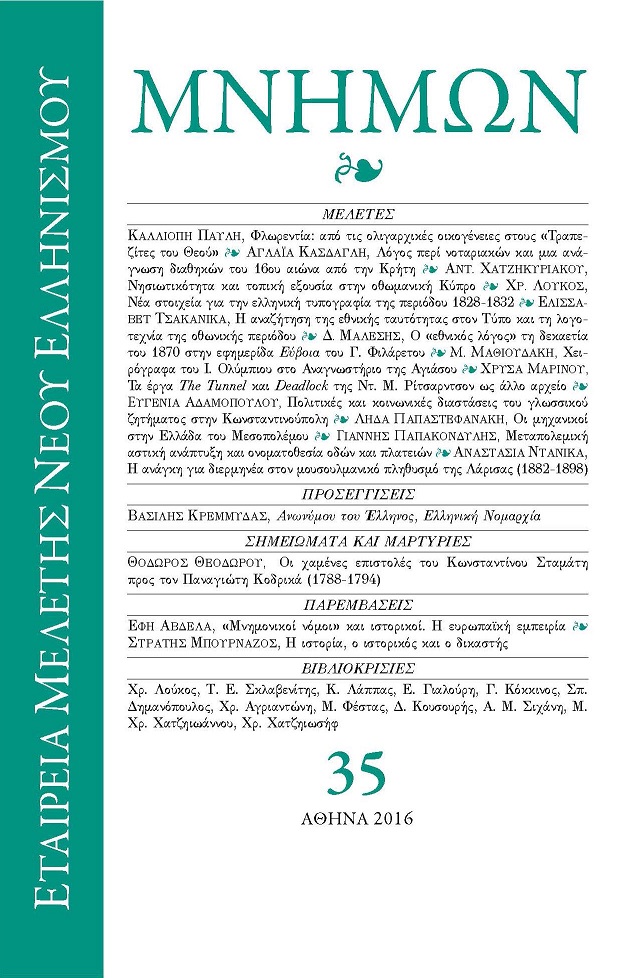Political and social dimensions of the language question in Constantinople (1911-1912). The persecution of the demoticists in the Stavrodromi community

Published:
Apr 22, 2019
Keywords:
language issue demoticists
Abstract
The aim of this article is to analyze language controversy from the perspective of the national identity formation as well as the political and social changes. The persecution of the demoticists teachers at the “Zografeio” and other schools in 1911, that is, the investigations held by the Educational Committee of Patriarchate and the Greek Orthodox Com munity of “Stavrodromi”, and finally the dismissal of some teachers cannot be explained sufficiently, unless they are incorporated into a broader context that is characterized by social and political fluidity. Various social and political interest groups were implicated in the contro versy; The Patriarch Ioackim the Third, the Greek State, the autho rities of the Greek orthodox Community. In this context which is influenced by the power of the regime of the “Young Turks”, the demoticists chose their allies. The study and meticulous analysis of primary archival sources, such as diplomatic and private correspondence, records of the General Assemblies of the Community of Sravrodromi, newspapers, enabled me to reveal how these agents were interdependent, struggling to control schools and community. Also it should be noted that through this language controversy, social groups such as petite bourgeoisie teachers found the opportunity to express their positions.
Article Details
- How to Cite
-
ΑΔΑΜΟΠΟΥΛΟΥ Ε. (2019). Political and social dimensions of the language question in Constantinople (1911-1912). The persecution of the demoticists in the Stavrodromi community. Mnimon, 35(35), 205–232. https://doi.org/10.12681/mnimon.20258
- Issue
- Vol. 35 (2016): Μνήμων
- Section
- ARTICLES

This work is licensed under a Creative Commons Attribution-NonCommercial-ShareAlike 4.0 International License.
The copyright for articles in this journal is retained by the author(s), with first publication rights granted to the journal. By virtue of their appearance in this open access journal, articles are free to use (with the exception of the non-granted right to make derivative works) with proper attribution for non-commercial uses (licence Creative Commons 4.0). EKT/NHRF retains the worldwide right to reproduce, display, distribute, and use articles published in Mnimon in all formats and media, either separately or as part of collective works for the full term of copyright. This includes but is not limited to the right to publish articles in an issue of the Journal, copy and distribute individual reprints of the articles, authorize reproduction of articles in their entirety in another EKT/NHRF publication, and authorize reproduction and distribution of articles or abstracts thereof by means of computerized retrieval systems.Downloads
Download data is not yet available.


